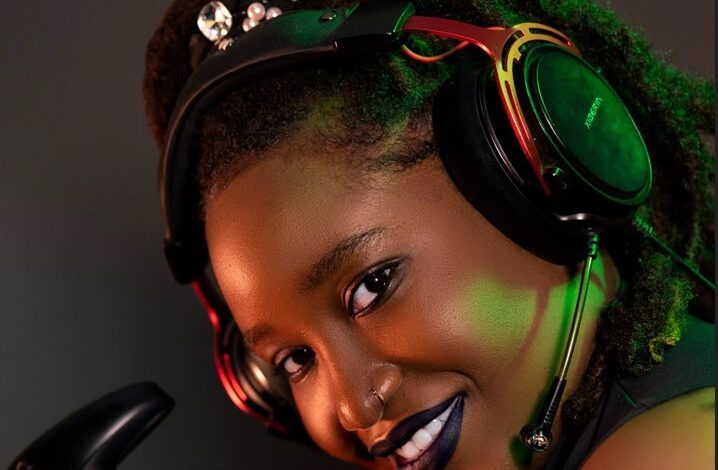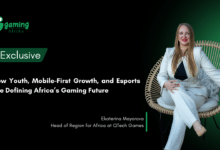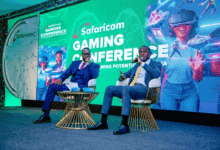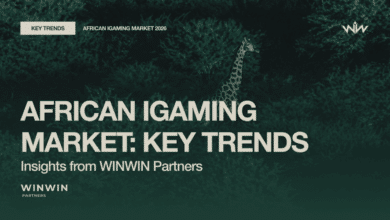Exclusive: Empowering African Gaming through eEports – Insights on Growth, Inclusivity, and Innovation

Faith Dorothy, Founder of Gamer Girls Uganda (GGU), has emerged as a passionate advocate for women in African gaming and a driving force in Africa’s burgeoning e-sports scene. In an insightful conversation with iGaming AFRIKA, she shares her journey into gaming, starting from her childhood curiosity with video games to her role today as an industry leader.
Faith discusses the unique challenges and transformative opportunities within African esports, from infrastructure and inclusivity to community-driven growth, and offers her perspective on creating sustainable, inclusive pathways for African gamers to thrive.
iGaming AFRIKA: You have been in the e-sports field for some time now. How did your journey within esports begin?
Faith Dorothy: My journey began when I was about 5 years old. It was around that time that I saw a computer for the very first time, and out of curiosity, I explored it, and coincidentally, the first application that caught my attention was a video game, Dave to be exact. Years later, I joined a primary school that had a computer laboratory and I spent most of the computer lessons challenging boys to several video games. As years went by, school became more serious and so I lost touch with that world until the COVID pandemic in 2020 when I reignited my love for video games to pass the time, and as it turned out, I was good at them. I haven’t looked back since.
iGaming AFRIKA: How do you see the growth of esports and video games in Africa compared to other regions like Europe and North America? What opportunities and challenges are unique to the African market?
Faith Dorothy: I’ll start with the challenges and opportunities that are unique to Africa. Infrastructure limitations come top of the list. Inadequate internet infrastructure, game servers, and access to gaming hardware are hindering the growth of esports in most African countries.
Secondly, regulatory issues. The lack of clear regulations and laws governing the industry in Africa has created uncertainty for investors and developers.
Lastly, the conservative nature of some African leaders and governments has contributed to the slower growth of the gaming industry in Africa by prioritising traditional industries over emerging sectors like gaming, viewing gaming as a Western influence or associating it with negative social impacts, leading to restrictions or discouragement.
iGaming AFRIKA: Mobile gaming has become a major frontier in Africa, especially with the rise of mobile internet usage. How has mobile gaming influenced esports participation in Uganda and other parts of Africa?
Faith Dorothy: With over 51% of smartphone adoption for Sub-Saharan Africa, forecasted to soar to 87% by 2030, there has been an increase in accessibility to information about the global gaming industry, mobile gaming, and participation in global esports.
We have also seen growth in local gaming communities which are a breeding ground for esports talent and directly influence the ever-growing number of mobile gaming tournaments that the members of those local communities get opportunities to participate in.
Read Also: Cameroon Implements Centralized Control Over Online Gaming Payments
In Uganda specifically, a team of passionate community members and I have been focused on growing the Call of Duty Mobile (CODM) community through hosting multiple tournaments throughout the year and partnering with organisations that would like to tap into the local gaming community like ISPs, gaming content creators, media houses, and esport organisations.
iGaming AFRIKA: What impact have platforms like the African Esports Championship (AEC) had on nurturing gaming talent and expanding the reach of competitive gaming across Africa?
Faith Dorothy: Platforms like the Africa Esports Championship have mobilised and impacted over 4,300 gamers across 20 African countries since its inception in 2019. They’ve organised tournaments across 3 gaming titles: Tekken, PUBG Mobile, Rainbow 6, and League of Legends.
They have also championed the growth of Pan-African gaming communities which have enabled gamers across the continent to connect, game, and grow together in skill and access to opportunities for growth.
Read the full interview in our digital magazine below:























